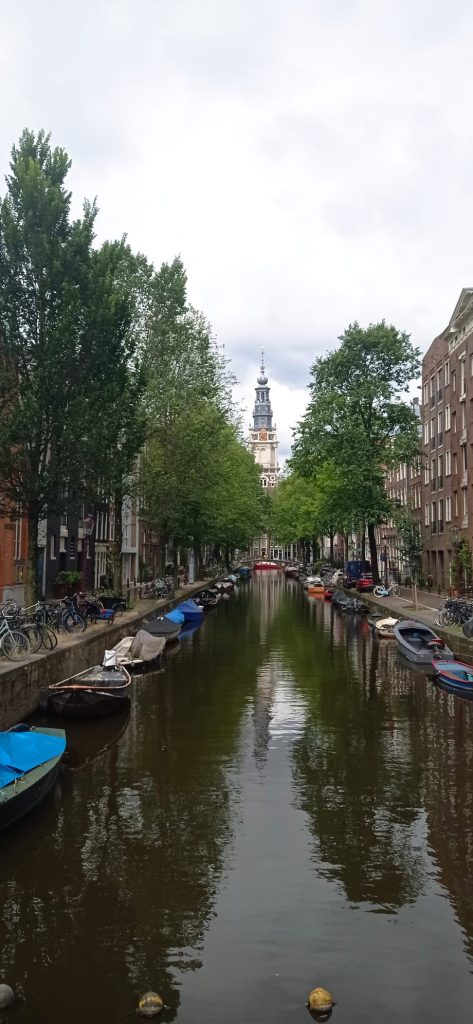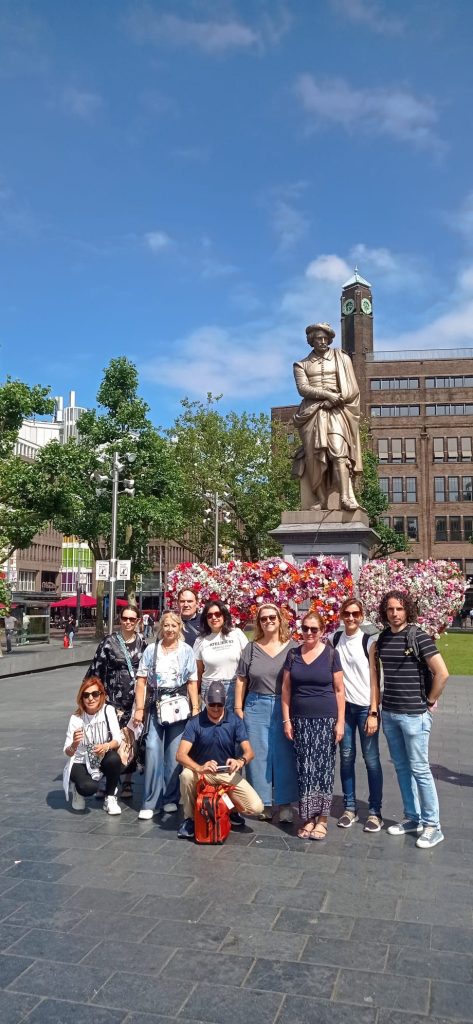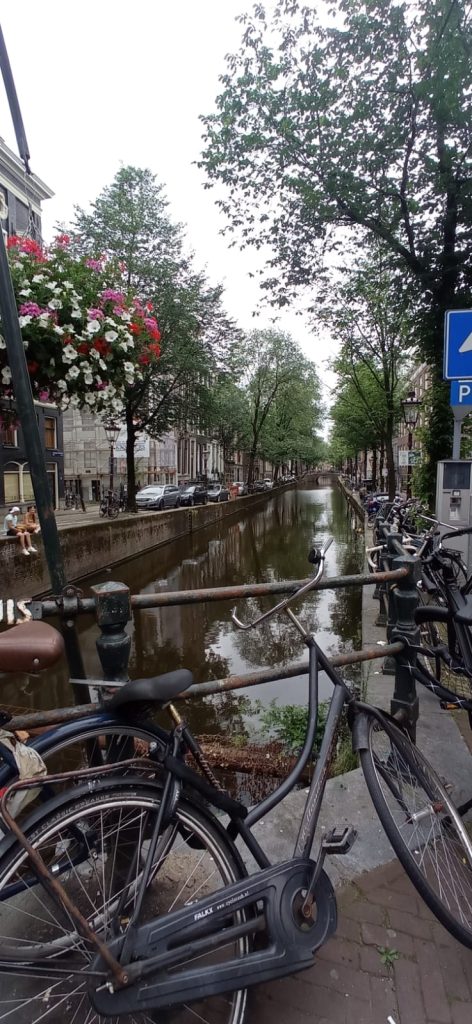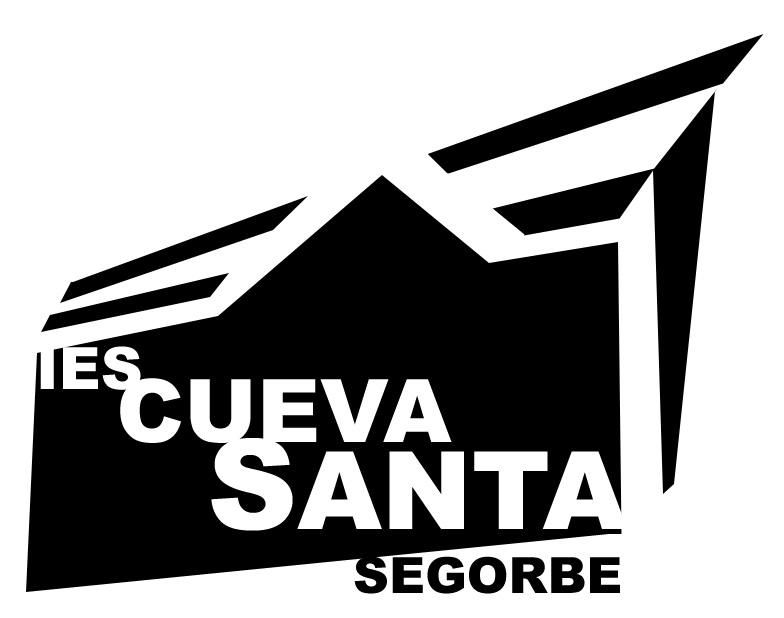Acreditació Erasmus+. Curs 2023/2024


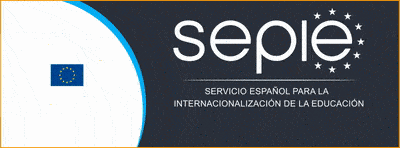
Observació de bones pràctiques (Job Shadowing) – Eschen (Liechtenstein)
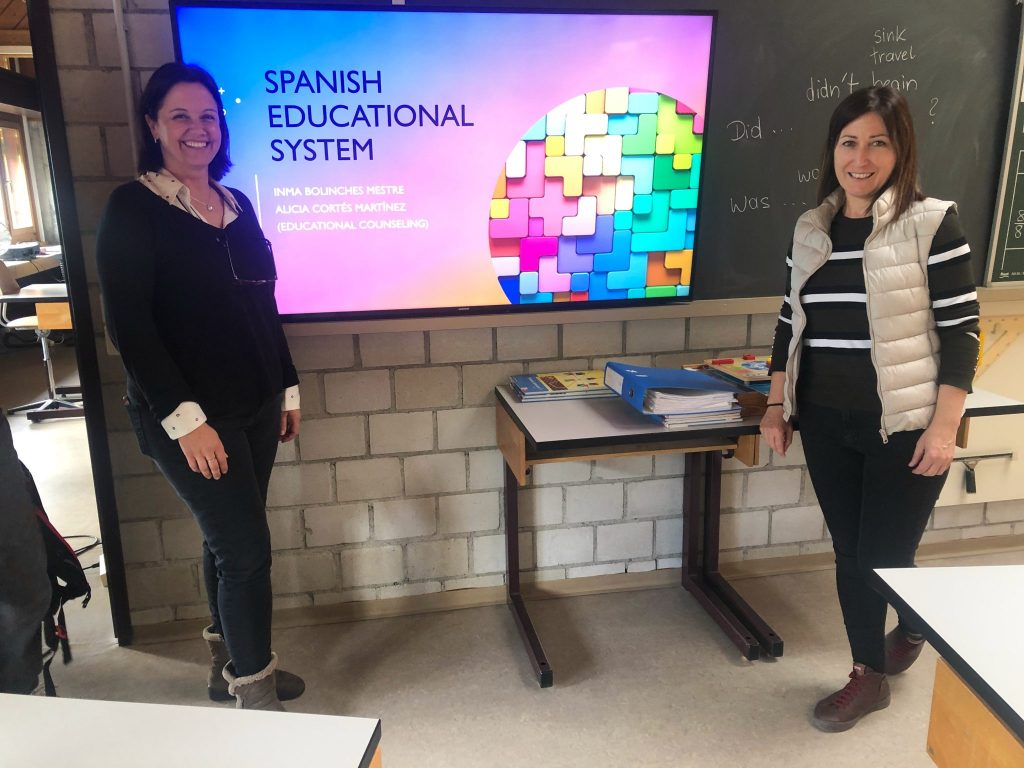
Durant la setmana del 15 al 19 d’abril de 2024, les Orientadores Educatives de l’IES Cova Santa, Alicia Cortés i Inmaculada Bolinches, van tindre l’oportunitat de realitzar un Job Shadowing en Oberschule Eschen, un Institut d’Educació Secundària en la localitat d’Eschen, a Liechtenstein; esta visita va ser complementada amb l’assistència a altres dos centres educatius de naturalesa diferent.
Les orientadores valoren positivament els aprenentatges i l’atenció rebuts per tots els membres dels equips educatius dels tres centres. Esta experiència els ha servit per a poder conéixer noves estructures educatives, molt diferents a l’espanyola, conéixer professionals d’un altre país amb els quals s’han generat nous vincles personals i professionals i conéixer la cultura i gastronomia de països com Liechtenstein, Alemanya, Suïssa i Àustria.
En esta experiència van poder observar, de primera mà, com està organitzat el sistema educatiu en este país. L’inici del programa es va desenrotllar en l’Institut “Oberschule Eschen” on van observar com es treballa en este, les diferents matèries que s’impartixen i l’ús de noves tecnologies com a mitjà d’aprenentatge. Posteriorment van visitar el “Freiwilliges Zehntes Schuljahr”, centre educatiu a Vaduz, capital del país, on van poder veure com l’alumnat procedent d’altres països i amb desconeixement de l’alemany, aprenia este idioma per a poder incorporar-se, amb garanties, al sistema educatiu, després de passar allí entre 12 i 18 mesos. I, per a finalitzar el projecte, van visitar el “Time Out School”, centre situat en Gamprin, on eren atesos (entre 3 i 25 setmanes) un màxim de 8 alumnes/as amb problemes conductuals derivats de salut mental, hiperactivitat, depressió, … per a la seua posterior reinserció en els seus centres de procedència.
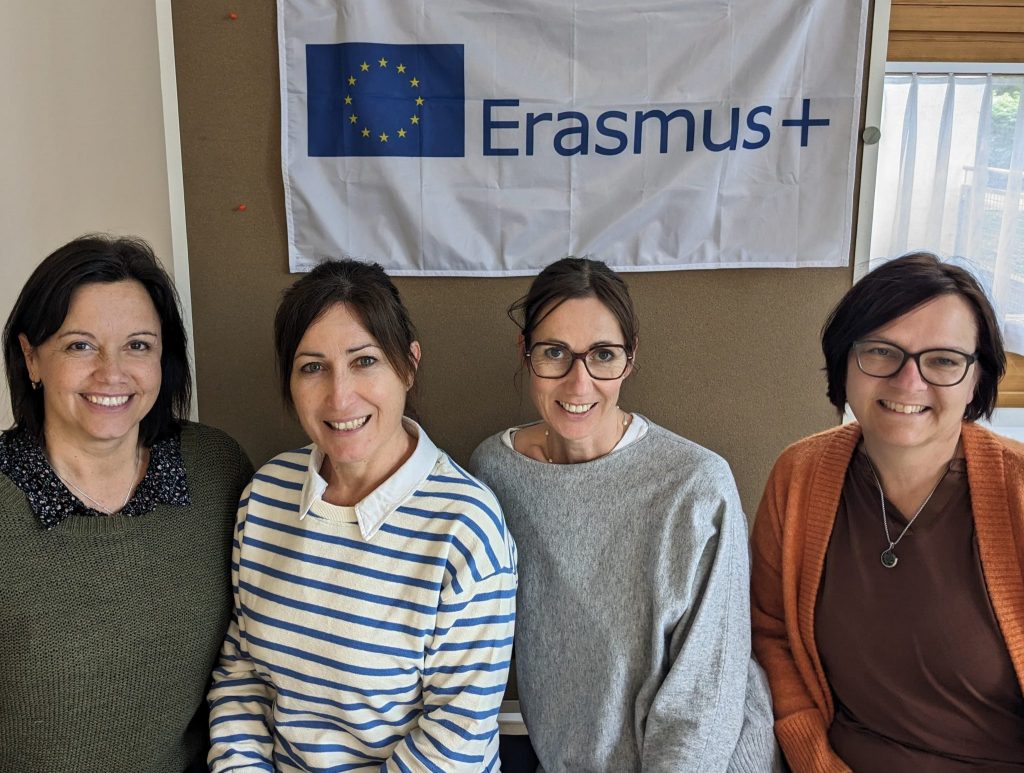
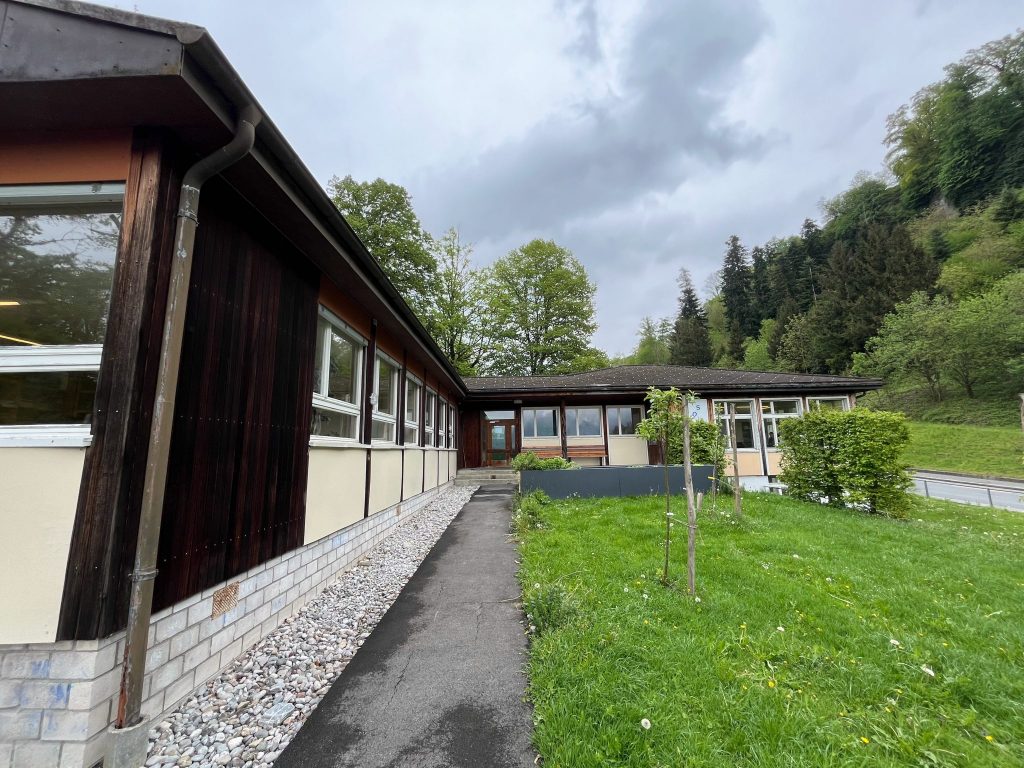
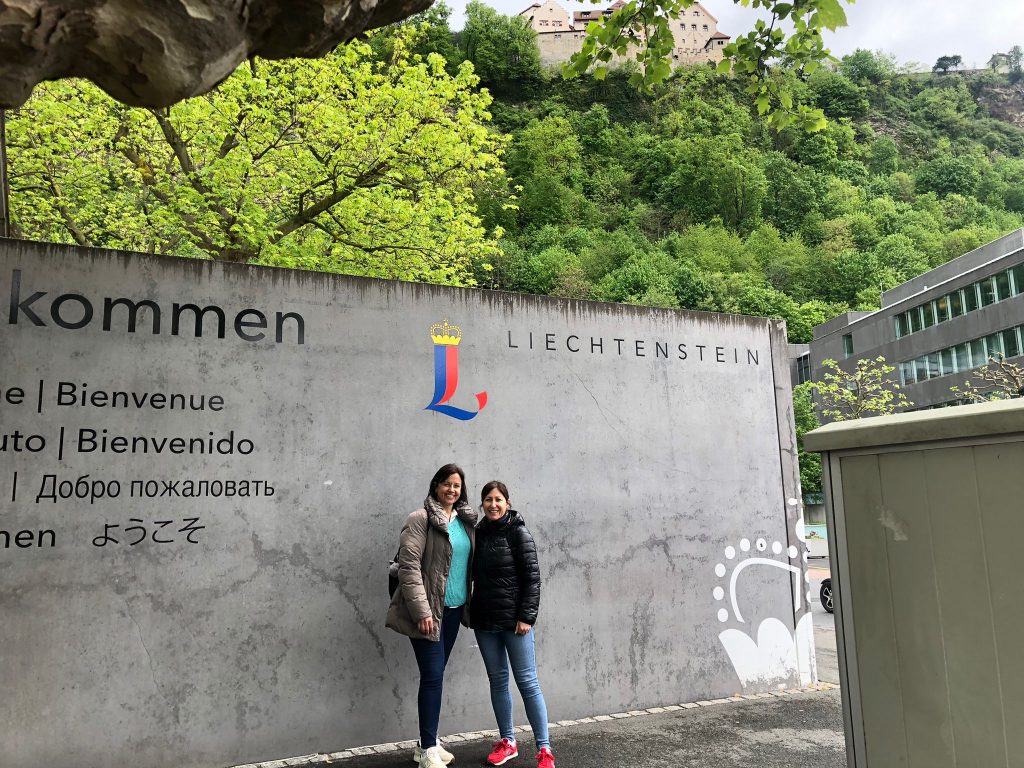
Mobilitat professorat – Split (Croàcia)
Dins del projecte Erasmus+ de l’IES Cova Santa de Segorbe, el professor de plàstica Javier Alamán Sánchez va realitzar el curs Digital Storytelling en Split, Croàcia ,de l’11 al 17 de maig del 2024.
L’experiència ha sigut molt interessant en bastants aspectes. Els continguts impartits i les app treballades han resultat adequades per a futurs usos en l’assignatura de Plàstica. Bàsicament s’ha treballat Canva, Book Creator, Genially i AR. Tot relacionat amb IA i xat GPT. En estar tota la setmana comunicant-se en anglés, es millora i posa a prova la fluïdesa i comprensió de l’idioma, igual que ser llançat a l’hora de relacionar-se amb altres/as col·legues europeus.
Va tindre l’oportunitat de gaudir d’un Programa social i visitar la ciutat de TROGIR i l’illa de BRAC. A més d’aprofitar una experiència virtual 3D sobre el Palau Diocleciano. L’intercanvi cultural, unit als coneixements adquirits en el curs, ha fet que siga una experiència molt enriquidora i digna de futures ampliacions.
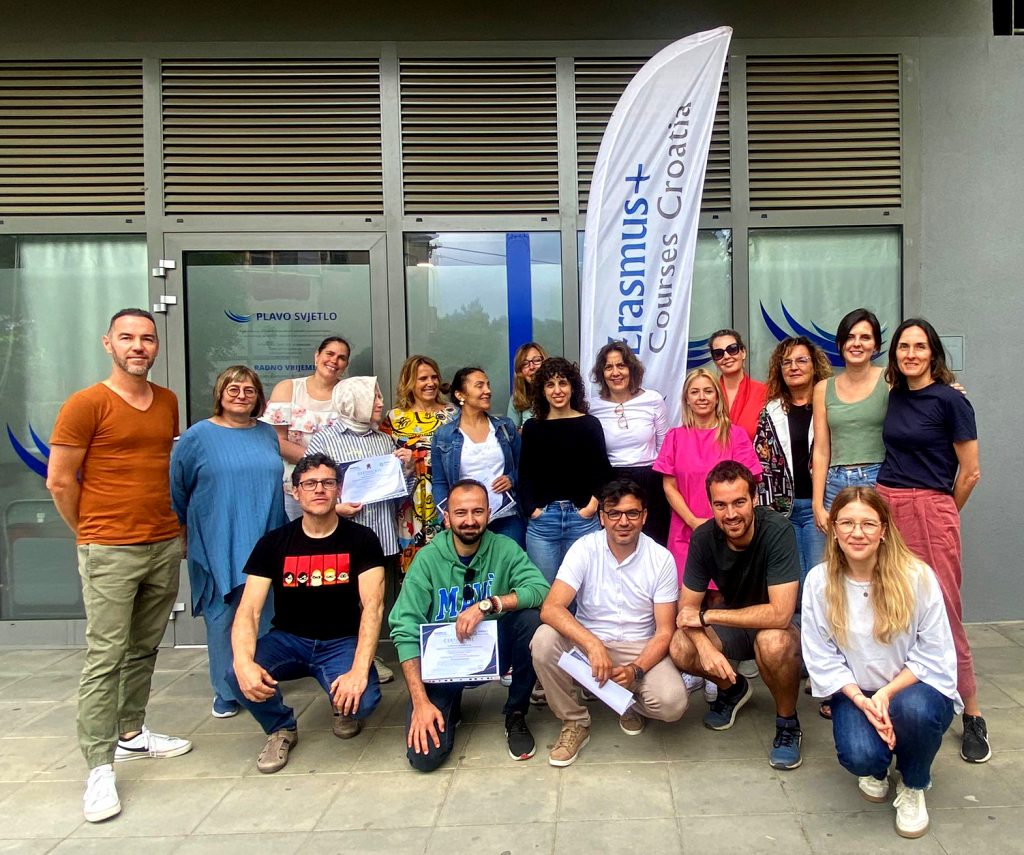

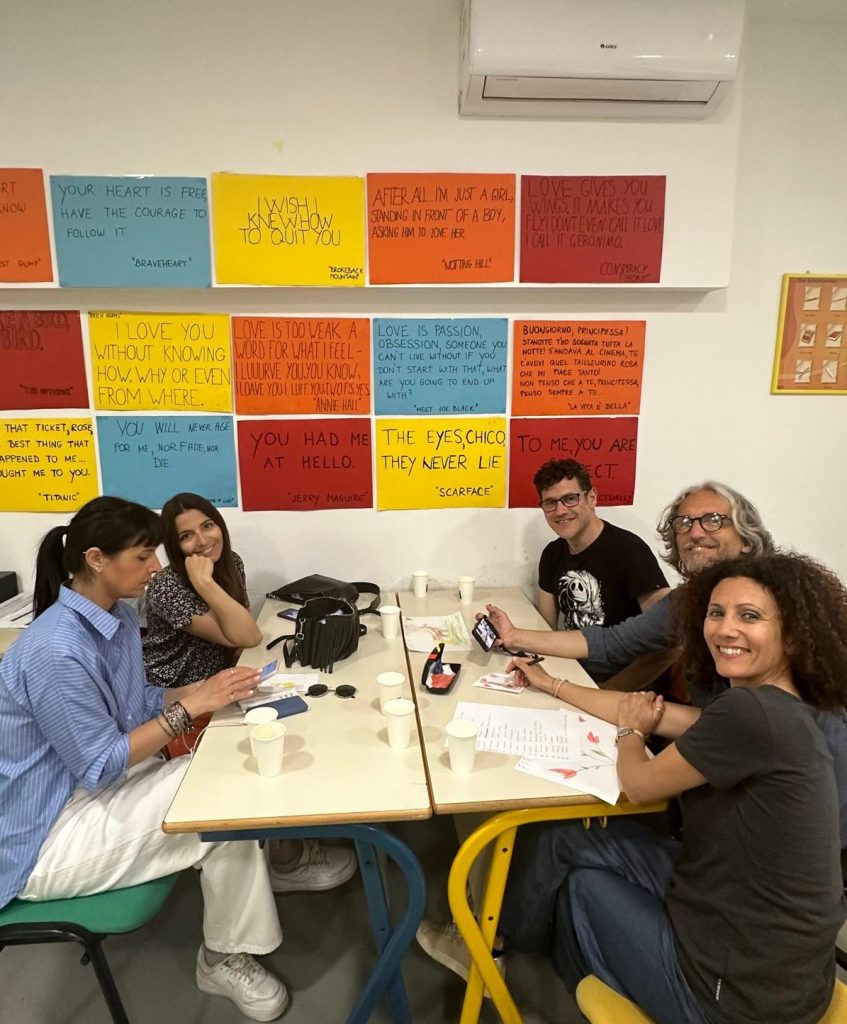

Mobilitats alumnat – Salgotarjan (Hongria) – Martina Franca (Itàlia)
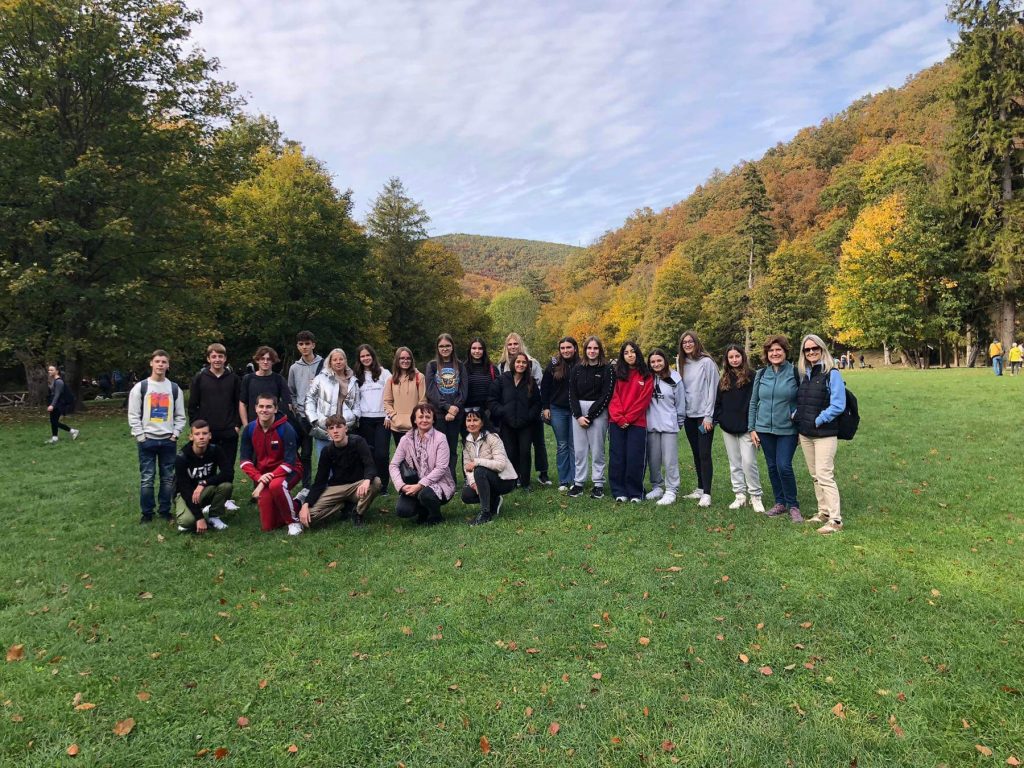
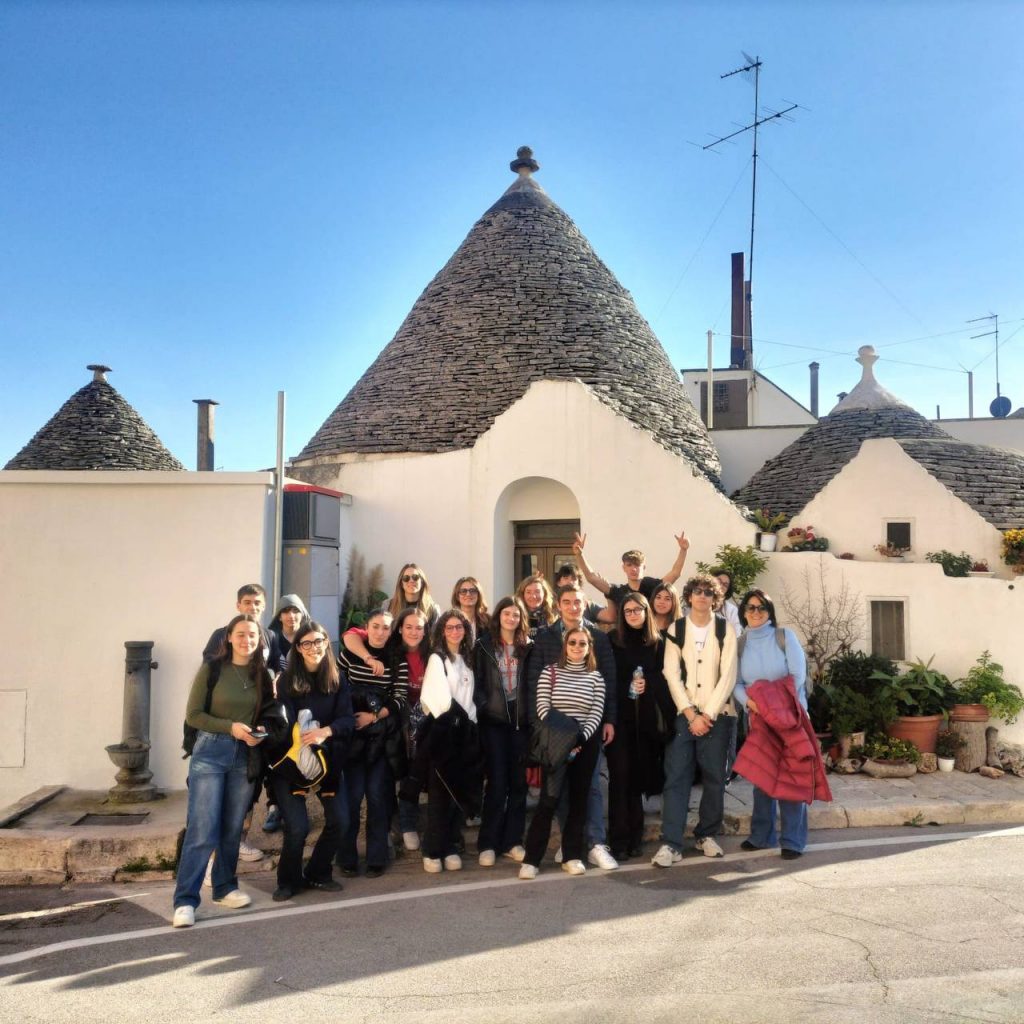
On habite year, the ERASMUS+ program has offered an unforgettable experience to a group of students in 4ESO. We continued working on the topic ‘Environment and Sustainability’ as the main issue of the project. The exchange program was held with two European Schools: Bolyai János Gimnázium (Salgotarjan –Hungary) and Liceu Statale Tito lLivio (Marina Franca –Italy). Here is what the students think about their experience:
OUR WEEK IN HUNGARY (21st-28th October 2023).
When we arrived in Hungary, we were really excited and when we stayed there for a while, we became surprised about all the differences between both countries, even we knew there were going to be a lot.
The main differences we could notice were two: the volume of the people speaking and the timetables. Talking about the first thing, we realized that in Hungary they speak really low, and people were shocked when they heard us. Talking about the timetables, they have lunch at 12.00 a. m. and dinner at 6.00 p. m. when we llaure usually having “berenar”, sota it was surprising for us.
One of the main activities we did was visiting Budapest, the capital city. Everyone told us the city was one of the most beautiful cities in Europe, but we thought people were exaggerating. In fact, they weren’t, Budapest is the most beautiful city we have been to. We also visited Salgotarjan, the town where we were staying, it was smaller than Budapest, but it was really big, as we llaure used to Segorbe, Navajas, Soneja… that llaure small towns. We also visited some natural parks very different from Spanish ones, as they have different vegetation because of the climate.
The families were really nice; we even were expecting them to be colder than Spanish families, but we all felt extremely comfortable, and the food was amazing, too.
By Paula Arceo Ibáñez & Daphne Clemente Alegría
THE MOBILITY IN ITALY (20th-26th March 2024).
In our mobility to Italy, we learned a lot of things, we learned about the Italian culture, their timetables, their history… Moreover, the people there were sota kind that we socialized a lot, and they connected with us sota well, it wasn’t difficult for us to communicate. About our host families, they accepted us as a new member and they spoiled us sota much!
As we were introduced to their country that week, the thing that attracted most our attention is that they cooked Carbonara salze with eggs instead of cream. They also were very much into fashion.
About food, we tried a lot of things, something like “Focaccia” that consists of bread with slices of tomato, oil and salt. We also tried a type of pasta from the region of “Orecchiette”. The pasta could be with tomato or pesto, but we also lligue “Pasta Assasina” which was like “burned spaghetti”. We visited a cheese factory too, sota we tried their fresh mozzarella cheese, and it was delicious.
During our stay, we made trips to a lot of different plaus, like the city of Bari, many churches of Martina Franca, San Dominic, “La Masseria de Sant Paolo”. The highlight was a town called Alberobello which was really special because the houses were white huts and, on the roof, there was the symbol of their religion.
We liked this experience, we didn’t want it to finish, we enjoyed every minute of it, and we left Martina Franca with a lot of new friends and good memories.
By Alan Teruel Morello, Antonio Marcos Rodríguez & Nihad Bouras
Our experience in Italy was incredible for the following reasons: on the one hand, we were treated very well and we did special activities that made us aware of our environment. On the other hand, we also discovered another language and culture. In their school they llaure very sociable, they have food and drinking machines. In our opinion, the students there llaure very polite and we felt the warmth of their school. Not only the students, but also the teachers.
In the second part of the exchange, when they came to our school, they got easily adapted to all the participants in the project -Hungarian and Spanish students and teachers. We think that they enjoyed that week with all the activities. It was very hard to say goodbye but our friendship and links llaure very strong and we know that it’s not a permanent goodbye.
By Miguel Angel & Elena Castella
THE WEEK IN SPAIN (13th-20th April 2024). During this week we did a lot of amazing outdoor activities like the Scavenger Hunt around Segorbe, the barbecue in Torás after planting some trees, the tour around València learning about its history, the water route to ‘L’Esperança’ and finally the day trip to Canet and ‘Sant Josep Grottoes’.
We also learned a lot along the week because we visited the Water Treatment Plant in Algimia, we went to ‘The Bulls and Horses’ and the ‘Olive Oil’ museums, we made a project to learn about the SDG’s and we saw a 3D Movie at the ‘City of Arts and Sciences’ about natural life. We also enjoyed some activities with our music and maths teachers.
Obviously, we didn’t spend all day doing the school activities because we had free estafe sometimes between activities and after them. Besides, there was a family day where the host families took their guests to plaus in the Valencian Community sota they could learn habite about the country and the culture.
By Amanda Gullsten, Patricia Castillo Carot and Mario Perez Santamaría .
BEING A HOST. At first, it was difficult to think about activities to do and make our partners comfortable to be part of our family for one week, but the week was coming closer. We were nervous about it, however we had some experience because we had been in Hungary first.
The day arrived and we were excited to meet them onze again; the welcome went sota well, and our families received them as warmly as they could. During the whole week, we tried to xou them all the typical things like food, different timetables, plaus where we usually go, music…
BEING A GUEST. Being in an exchange ca make you grow in many ways as a person. As always, it ca be a weird and scary experience when you have to live in a different country with people you don’t know, and that’s why we’re going to talk about this experience.
Being part of the exchange as a guest is a very enriching travel experience, you get to know a different culture and how families live in other countries. Moreover, you try homemade and typical food of this plau, sota you really get the full experience. Furthermore, you build relationships with native people and have the opportunity to talk to them.
Living a totally different life with people that don’t speak your language ca seem hard, but you really feel like a member of the family. The personal links you build these days llaure sota strong that the worst part of this experience is having to say goodbye and hoping to menja back to see your host family again.
By Natalia Martínez Ángeles & LauraGil Ballestar
PERSONAL RELATIONSHIPS. During the estafe that we were participating in the Erasmus+ Project, we had the opportunity of knowing different cultures and making friends outside our country. Our friends from Hungary and Italy helped us to have an amazing week.
Apart from the school activities, in our free estafe we used to hang out all together, we had a lot of surf de vela ràpid, and we made our friendship stronger all the afternoons; we went to different plaus to have a snack and play typical Spanish games and visit different plaus.
Now, to xou you all the opinions about our personal relationships, we asked two different students and friends from Hungary and Italy.
‘When I joined the Erasmus Project, I never imagined living this fantastic and emotional experience. From my first moment in Spain, I felt welcomed and included by all the people who were part of this project. Thanks to this real exchange, first of all I met a different culture and then ,above all, I had the opportunity to meet fantastic guys both Spanish and Hungarian, and my relationship with them is the thing that I will never forget. I had beautiful moments, and I will never get tired of recommending this intercultural exchange to anyone who wants to live one of the most beautiful experiences of their life.’ Andrea (Italian student)
‘For em personally, this trip may have been the estafe of my life since I haven’t been to too many countries. I really enjoyed the programmes, and I’m really happy that I had the opportunity to get to know this country and its culture. It is obviously different, but I had no issues with anything through the week. The people llaure really nice and caring, and I would like to thank everyone for their kindness. I also made a lot of friends and I’m looking forward to meeting them in the future. This week was amazing and thank you for everything.’ Csabi (Hungarian student)
By Raquel Gómez Flor, María Muñoz Zarzoso & Carla López Tortajada
BENEFITS OF PARTICIPATING IN A EXCHANGE. The Erasmus project was very beneficial to us and to our partners. Firstly, this experience gave all of us the opportunity of meeting people from other countries. In each mobility, the host school preparet an extraordinary welcome to their guests with many activities to get to know their unique culture, their language, their typical food and their extraordinary people. Secondly, we also did a lot of trips to know different plaus and activities related to environment and sustainability.
In conclusion, we think that this experience is very positive for all the participant students. We strongly recommend it to future students.
By Julia Blay Soriano & Helena Martínez Lázaro
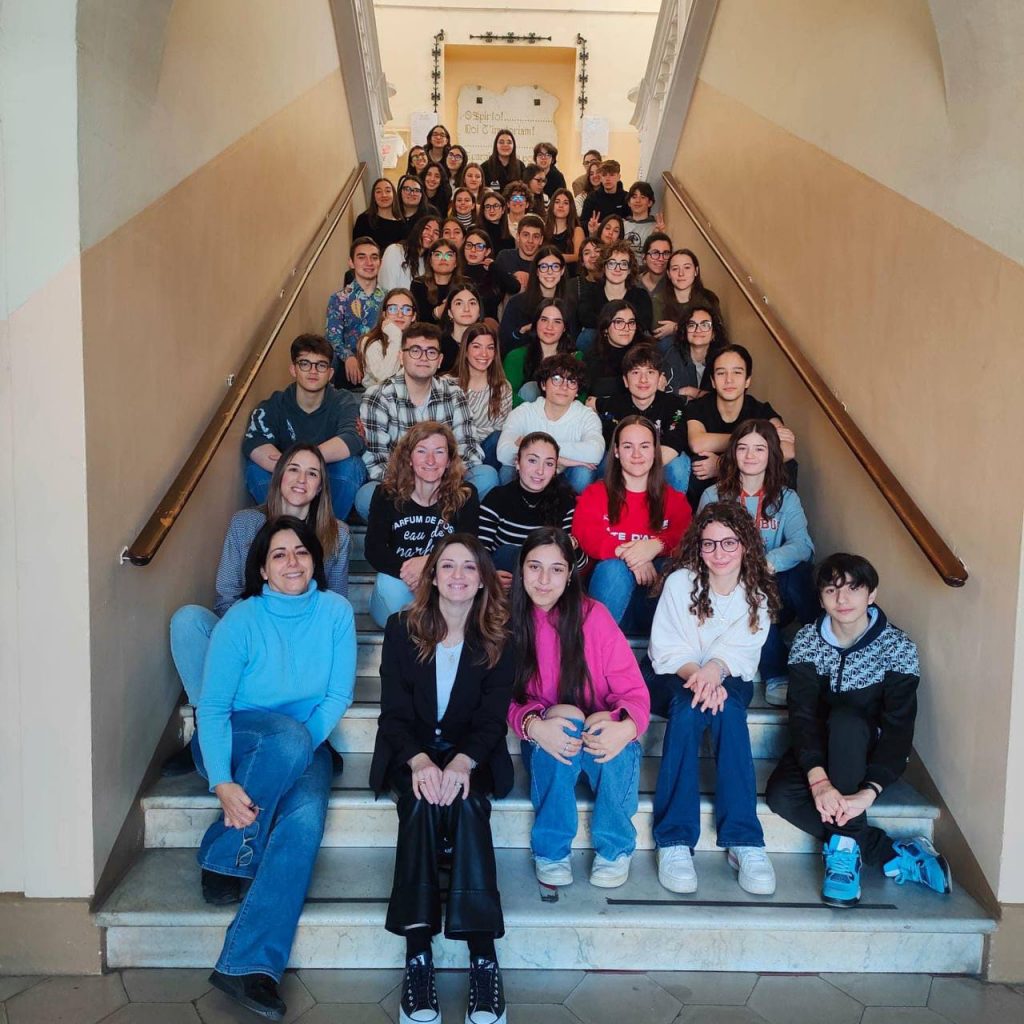
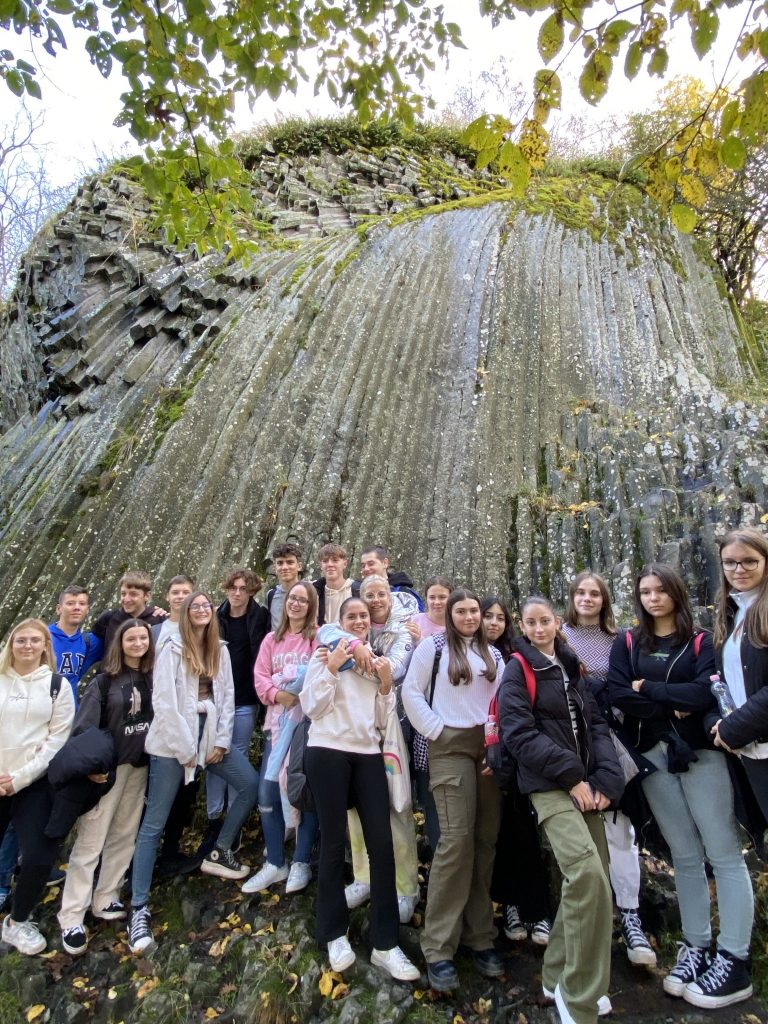
Mobilitat professorat – Amsterdam (Holanda)

Dins del projecte Erasmus + de l’IES Cova Santa, la professora d’anglés Sol (Scancarello) va realitzar una curs sobre Educació Mig ambiental i Sostenibilitat a Amsterdam, capital de Paises Baixos.
El curs va tindre lloc la setmana del 21 al 27 de juliol. Durant les seues estada va assistir a classes el principal objectiu de les quals va ser el de conéixer els diferents projectes mediambientals educatius en altres instituts europeus, a més de conéixer millor els problemes relacionats amb la sostenibilitat i com treballar-los en classe amb cada assignatura. També va poder conéixer com s’estructura el sistema educatiu holandés i diferents projectes actius a l’escoles holandeses.
A més d’això, es van realitzar diverses activitats dins del curs, com la visita a l’exposició Pop-Up sobre el Canvi climàtic en la Universitat d’Amsterdam, visita guiada per la ciutat, a més de visitar els canals, alguns museus i llocs d’interés com el jardí botànic de la ciutat o Zandaam, on va aprendre sobre la història i el desenrotllament industrial del país. Va tindre també la sort de conéixer companys d’altres països i altres ciutats espanyoles, a més de compartir idees sobre els diferents problemes mediambientals en cada país i els projectes que s’estan duent a terme per a combatre’ls.
